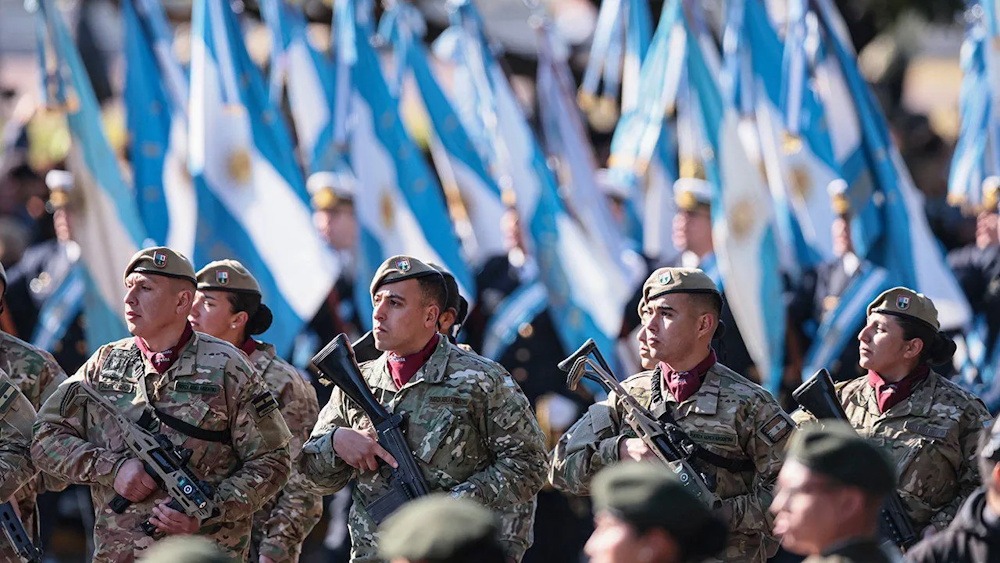Argentina’s economic crisis continues unabated, with wages throughout a significant portion of the national economy falling short of any reasonable benchmark for consumption. This has instigated a crisis of significant magnitude within the Armed Forces, particularly within the Navy, where dedication alone can no longer support those whose compensation is barely adequate.
The La Libertad Avanza administration, which pledged during its campaign to restore dignity to the military after years of Kirchnerite ideology that consistently disrespected the uniformed forces, is currently confronting significant budgetary challenges. President Javier Milei’s “chainsaw” austerity policy, coupled with the inertia of a Defence Ministry team under Luis Petri – which has struggled to even organize the military’s health insurer IOSFA – has exacerbated the crisis. The Navy Hospital is reportedly confronting layoffs affecting over 500 employees, as stated by the ATE state-workers union. The most concerning development is the ongoing exodus of professionally trained officers who find it increasingly difficult to sustain their livelihoods.
In this context, Defence Minister Luis Petri convened a meeting with the Navy’s senior leadership to evaluate the situation in light of the recent wave of resignations. As of July, a total of 234 Navy officers and non-commissioned officers submitted requests for discharge. Such figures are unparalleled in recent years and are projected to double by the conclusion of 2025. Several key factors underpin what is evolving into a structural crisis, propelled by enduringly severe economic conditions. The current exodus reflects not a decline in vocation or commitment, but rather an issue of insufficient wages and limited career opportunities.
lack of a clear upward trajectory in professional advancement, especially impacting those in the middle ranks, is contributing to the exodus of officers. Salaries continue to hover near the poverty line, notwithstanding the pay increases observed in October 2024, March 2025, and August 2025. The persistent need for availability and the rigorous demands of military life are compelling trained personnel to transition into the private sector.
Resolution 63/25, as published in the Official Gazette, establishes remuneration through the year’s end, revealing concerning salary scales, where certain grades scarcely surpass 500,000 pesos. The magnitude of the crisis is underscored by the fact that a second class seaman receives a monthly income of less than 600,000 pesos – a sum that an Uber driver can earn within a week. The ongoing crisis of inadequate compensation permeates all three branches of the forces.
While Petri’s engagement with admirals has drawn scrutiny towards the Navy, a similar scenario is unfolding within the Air Force and Army. By late June, over 2,200 service members from the three branches had submitted requests for discharge. In addition to the 234 sailors, a total of 257 Army officers and 193 Air Force pilots also tendered their resignations. The crisis encompasses the whole nation. In Córdoba Province, a significant number of officers have transitioned to the provincial anti-narcotics force under the leadership of Governor Martín Llaryora.
The ramifications are significant: an irreversible depletion of human capital skilled in specialized units and essential research domains, alongside a deterioration in the quality and accessibility of vital national defense capabilities. Only increased funding, material resources, and the requisite time to train new cohorts will effectively tackle this issue amid an increasingly intricate global geopolitical landscape.

